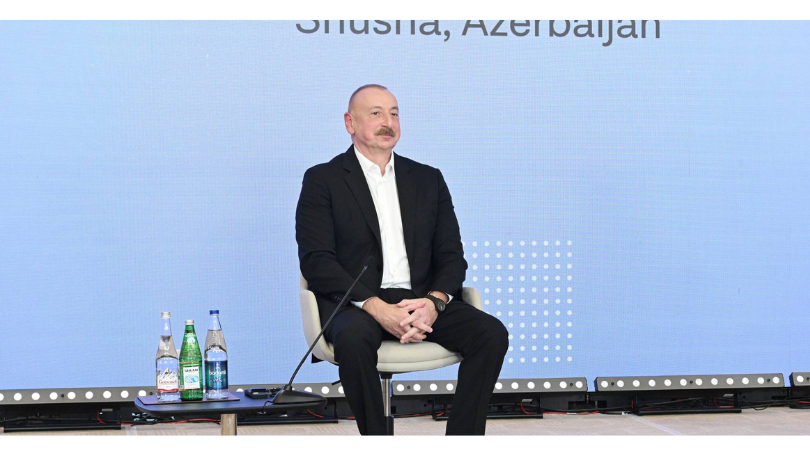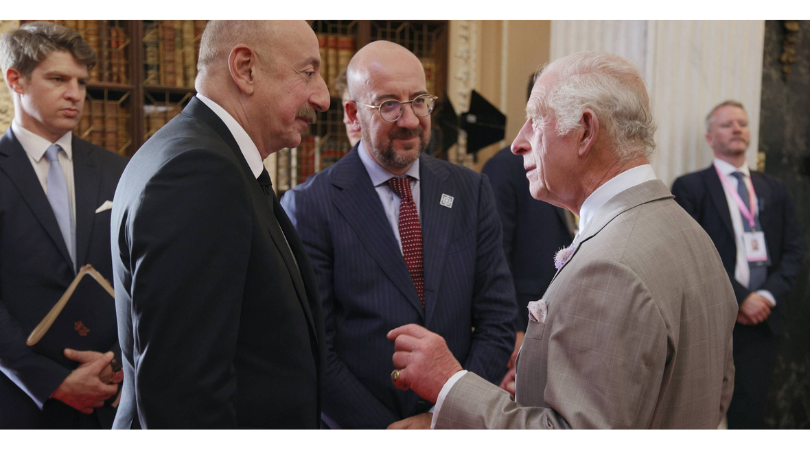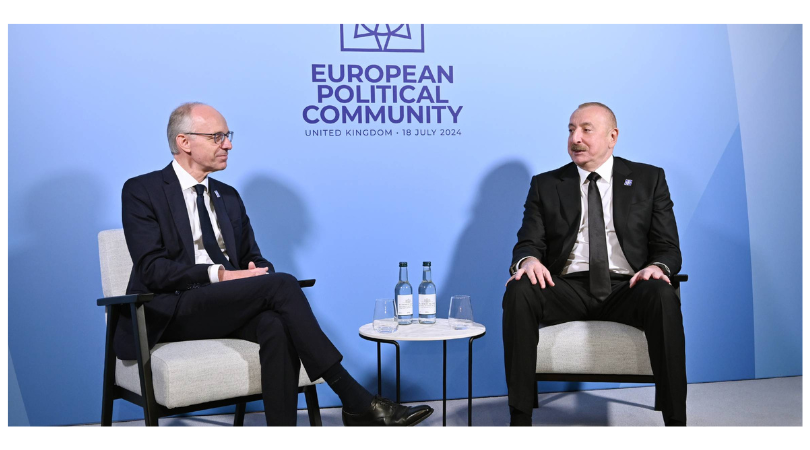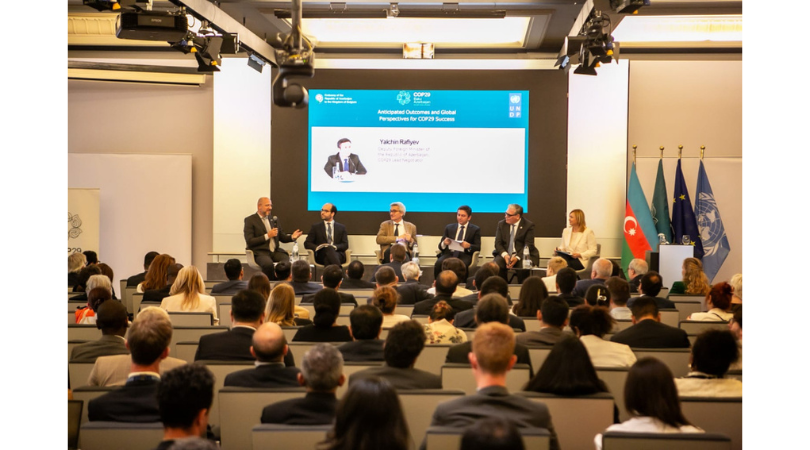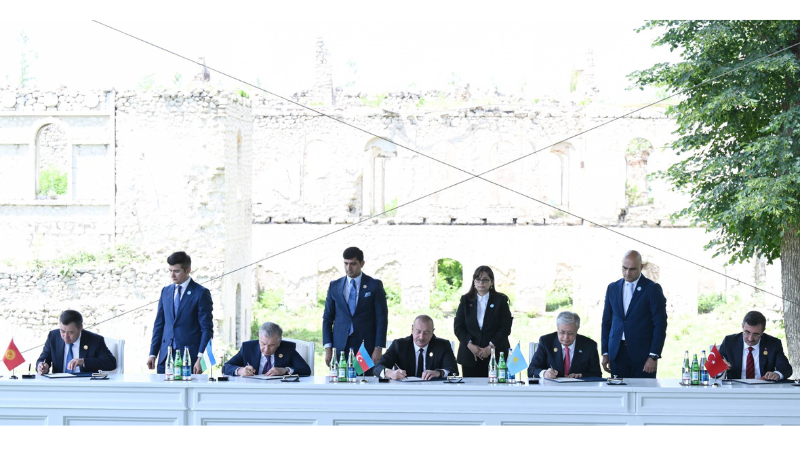STATEMENT of the Commissioner for Human Rights (Ombudsman) of the Republic of Azerbaijan on the 23rd anniversary of the Khojaly Genocide
It has already passed 23 years since Khojaly genocide that is as an integral part of the occupant and genocide policy of Armenia against Azerbaijan which was resulted at the severe violation of international legal norms and principles as well as human rights and freedoms. This tragedy is a terrible evidence of long-lasting ethnic cleansing and genocide policy of Armenian chauvinists and their supporters against Azerbaijan.
At the night from the 25th to 26th February of 1992, the crime committed in Khojaly city by Armenian armed forces together with the 366th motoartillery regiment of the former Soviet army dislocated in Khankandi must be recognized as genocide from the international law perspective. A lot of heavy military equipment of this regiment also consisting of officers of Armenian origin entered the city and totally destroyed and burned down the houses and social infrastructure. The perpetrators annihilated with a special cruelty the people who were forced to leave the city in horror.
Under the international law, genocide is considered to be one of the gravest crimes. The elements of the crime of genocide are determined in number legal documents. The UN General Assembly Resolution 96 (I) of 11 December 1946 states that genocide, violating the right of people to life, damages human dignity, and deprives the mankind of the material and spiritual values created by human beings. Such acts are contrary to the spirit and aims of the United Nations and universal values.
The international legal definition of the crime of genocide was determined in the United Nations Convention on the Prevention and Punishment of the Crime of Genocide adopted by the Resolution 260(III) of the UN General Assembly of 9 December 1948. The commitment of criminal acts, planned in advance and aimed at mass annihilation of people on the ground of their nationality during the Khojaly genocide constitutes this crime as genocide. During the aggression against Azerbaijan all elements of the crime of genocide stated in the abovementioned Convention were applied. Under international law, the genocide offenders should be prosecuted and punished. However, unfortunately, though the commitment of such terrible acts of genocide against the Azerbaijani civilians, these facts, including Khojaly genocide have been not yet legally assessed, the planners, organizers and the committers of this crime were not prosecuted and punished, no relevant measure has been taken yet.
Nagorno-Karabakh and adjacent seven regions occupied by Armenia are integral part of Azerbaijan. This is re-affirmed once again by the UN Security Council Resolutions 822, 853, 874, 884 from 1993, UNGA Resolution on “Situation on the occupied territories of Azerbaijan” dated on March 14, 2008, Resolution 1416 from 2005 and Recommendation 1669 from 2009 of the Parliamentary Assembly of the Council of Europe confirming the occupation of Azerbaijani territories by the Armenian military forces, and governing of Nagorno-Karabakh by separatists. As a consequence, over one million people became refugees and IDPs, whose rights and freedoms were severely violated.
Armenia, being accepted as a member to the Council of Europe, has undertaken several international obligations according to the Opinion No. 221 of the Parliamentary Assembly, including the obligations to pursue efforts to settle the conflict in Nagorno-Karabakh by peaceful means only and to settle international and local disputes by peaceful means and according to the principles of international law, resolutely rejecting any threatened use of force against its neighbors. Nonetheless, continuation of the occupation still creates obstacles to the peace as well as sustainable development in the region and the ceasefire is being regularly violated.
The European Parliament Resolution of 23 October, 2013 on Nagorno-Karabakh also re-affirms the support of just position of our State by the international community and the fact of occupation. For the first time this document denotes the importance of the resolution of this conflict in comply with UN Security Council above shown resolutions of 1993 that requires immediate, unconditional and total withdrawal of all occupant forces out of the territories of Azerbaijan. Regrettably, no measure has been taken in this direction as well and the historical territories of our country still remain under occupation.
Our National Leader Heydar Aliyev unveiled the essence of the Khojaly massacre, and in February 1994 the Milli Majlis (Parliament) of the Republic of Azerbaijan gave legal and political recognition to this tragedy. The country President, Ilham Aliyev underlined resolutely the necessity of this conflict resolution only in the frame of territorial integrity of the country as well as emphases the necessity of withdrawal of occupant forces from the Azerbaijani territories.
“The Action Plan of Events on the occasion of the 23rd anniversary of Khojaly Genocide” was approved, according to which press conferences, commemorations, enlightening the relevant information through foreign mass media and TV channels and devoting special relevant lessons at education institutions were considered.
In her speeches at the esteemed international events, the Azerbaijani Ombudsman attaches great importance to the delivery and promotion of truths. In March of 2014, during the 25th session of UN Human Rights Council dedicated to the 65th anniversary of the Convention on Genocide held in Geneva, the Statement of the Azerbaijani Ombudsman on the prevention of genocide was deposited among the official documents of organization, placed in the web page and was distributed to the participants in 250 copies.
Recently, in terms of international law, there is a certain revival regarding the promotion and recognition of our just position all over the world and massacre committed in Khojaly is acknowledged. Legislative bodies of the US States, namely, California, Massachusetts, Texas, New-Jersey, Maine, New Mexico, Arkansas, Georgia, Oklahoma, Tennessee, Pennsylvania, Connecticut, Florida and Mississippi had also passed the related resolutions and demanded bringing the offenders of Khojaly genocide to the criminal responsibility. Also, West Virginia State’s House of Representatives passed a resolution on the Khojaly tragedy. This Resolution commemorates that the Khojaly tragedy is a part of the military aggression carried out by the Armenian military troops in Nagorno-Karabakh region of Azerbaijan since 1988.
Already, the Parliaments of Canada, Mexico, Columbia, Peru, Pakistan, Bosnia and Herzegovina, Romania, the Czech Republic and Jordan also recognized the Khojaly genocide.
Embassies, diplomatic missions, Diaspora organizations and communities of the Republic of Azerbaijan, in different countries, hold numerous events devoted to Khojaly genocide.
American political analyst Raul Lowery Contreras in his article published at online newspaper “The Hill” wrote about this bloody event as such: “Twenty three years ago, Armenian soldiers supported by Russian troops attacked an army-less newly independent Azerbaijan and seized a large portion of the country. Armenia expelled almost 1 million Azeris from their homes in the conquered territory while committing a massacre of an entire Azeri community in the town of Khojaly. Eyewitness American and European journalists described the bloody scene of massacre littered with disfigured bodies of men, women and children in dispatches published at the time. One word is applicable in this case: genocide.”
The Organization of Islamic Conference was the first international organization that recognized Armenia as an aggressor and the Khojaly tragedy as genocide. The aim of the campaign “Justice for Khojaly” organized by the Youth Forum of OIC and carried out in over 40 countries of the world, is also to aware the international community about this bloody event.
Offenders of genocide should be punished. Pursuant to the Articles 5 and 6 of the Genocide Convention states that “the Contracting Parties undertake to provide effective penalties for persons guilty of genocide. Persons charged with genocide shall be tried by a competent tribunal of the State in the territory of which the act was committed, or by such international penal tribunal as may have jurisdiction with respect to those Contracting Parties which shall have accepted its jurisdiction.
The Convention on the Non-Applicability of Statutory Limitations to War Crimes and Crimes against Humanity of 26 November 1968, states that no statutory limitation shall apply to the crime of genocide, irrespective of the date of its commission, which allows to bring the persons guilty of genocide to the criminal responsibility.
Without double standards and in comply with the norms and principles of international law, the special international commission should investigate this crime, also, the corresponding international organizations should recognize this crime as an act of genocide as well as should impose sanctions on the perpetrators of this crime. I call the international organizations to condemn this genocide and to increase efforts to punish the offenders of this crime as soon as possible demonstrating the impartiality.
We do once again declare Armenia should fulfill the provisions of international legal documents on this conflict, liberate the Azerbaijani captives and hostages, also the territorial integrity of Azerbaijan and the violated rights of refugees and IDPs should be restored as well as they must return to their homes and the criminals killed innocent people and committed genocide should be prosecuted and punished before the trial very soon.
Elmira Suleymanova
Commissioner for Human Rights
(Ombudsman) of the Republic of Azerbaijan
16.02.2015
The Statement is addressed to the Secretary-General of the United Nations, United Nations Security Council, United Nations High Commissioner for Human Rights, European Commission, Council of Europe, Council of Europe, OSCE, International Ombudsman Institute, European Ombudsman Institute and Asian Ombudsman Association, International Peace Bureau, International Peace Federation, ombudspersons of foreign countries, embassies of the Republic of Azerbaijan abroad, as well as the foreign embassies in Azerbaijan, and organizations of the Azerbaijani Diaspora.

